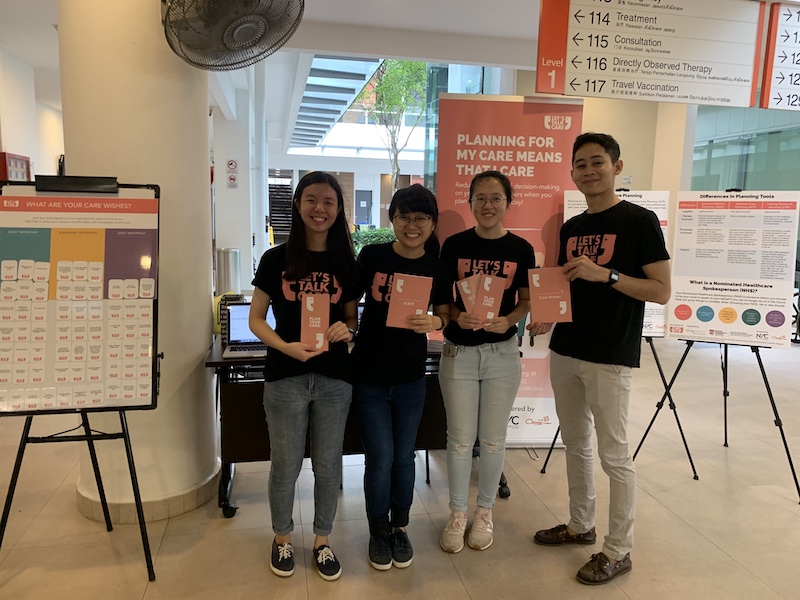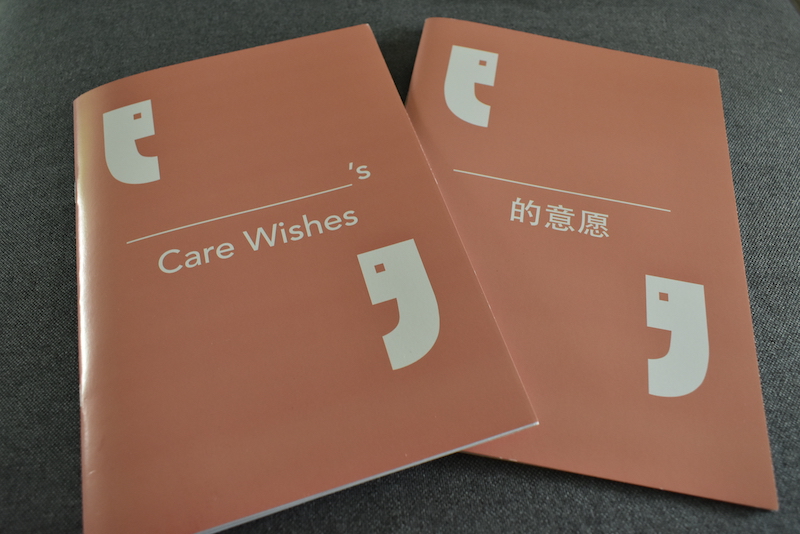Being prepared
Bringing awareness on ACP in an event one loses his or her mental capacity.

Team members of Let’s Talk Care – from left, Esther Chew, Freda Tan, Lim Say Hwee and Haikal Latiff.
Talking about one’s Advance Care Planning (ACP) can be a difficult subject, but not for a team of four final-year Communications Studies undergraduates from Nanyang Technological University (NTU) who have taken it upon themselves to put the spotlight on this subject. From January to March, they came up with a campaign called “Let’s Talk Care” to raise awareness on ACP, and to urge Singaporeans to reflect on their future health and personal care preferences in advance, in an event they might lose their mental capacity to make decisions on their own.
ACP is a non-legal document unlike an Advance Medical Directive (AMD) and a Lasting Power of Attorney (LPA), and does not require a lawyer. An AMD involves telling your doctor that you do not want extraordinary life-sustaining treatment to prolong your life when you become terminally-ill and unconscious, where death is imminent. A LPA involves appointing a donee to make decisions on property and financial matters on your behalf when you no longer have mental capacity to do so.
The students conducted a pre-campaign survey last October amongst 201 Singaporeans aged between 50 to 64 and found that more than half of the respondents have not heard about ACP. The students which included Esther Chew, Freda Tan, Lim Say Hwee and Haikal Latiff said, “There has been low awareness about ACP, and among those who have heard of ACP, there were still some misconceptions that the respondents had.”
They shared that even though there is an increased attention and emphasis on the LPA, the general public is largely unaware about ACP. “Our research has shown that even after respondents learned about ACP and acknowledged the importance of it, they have lower intentions to do it now.” Hence, the students through their campaign developed online collaterals and conducted public outreach booths such as at Tan Tock Seng Hospital and Bishan Public Library, educating over 772 people on ACP and urging them to start planning their care now.
The students shared about a 93-year-old woman who did her ACP and who they included in their campaign video. “She told us that she does not have any children and grandchildren as they passed away. For her, doing an ACP was important because of her age and she has no one to take care of her and make care decisions for her. As such, she asked her sister’s granddaughter to be her nominated healthcare spokesperson and have made her wishes clear to her so that she can easily make decisions.”
The team from Let’s Talk Care also came up with two reflection workbooks in Chinese and English. In these workbooks, there are nine questions which allow individuals to sort their care wishes based on different levels of importance. People can initiate their care conversation with their loved ones using a postcard provided at the end of the workbook.
So why did the students choose this subject? Shared one of the team members, 28-year-old Haikal: “I witnessed the stress my cousin had to go through in deciding what sort of care his father would want after suffering a stroke. That inspired my team to embark on Let’s Talk Care.”
The four of them added: “We initially thought introducing this topic may be difficult as it could be sensitive to people. Indeed, some people felt that they are still young and healthy and so they should not or don’t have to be thinking about such things. However, we also managed to speak to a lot of Singaporeans who were interested in what we had to say as they understood the benefits of ACP, which was very heartening to see. Though it can be a taboo to speak about death-related topics, all the more there is a need to raise awareness about it, so there should be more of such campaigns in the future.”
The students said they have shared their findings and learnings from their campaign to their partners for them to adapt to their future outreach events, and some of their campaign collaterals have also been passed to them.
Though the Let’s Talk Care campaign may be over, you can still download a copy of the workbook at: www.letstalkcare.sg/reflect-acp.


0 Comments